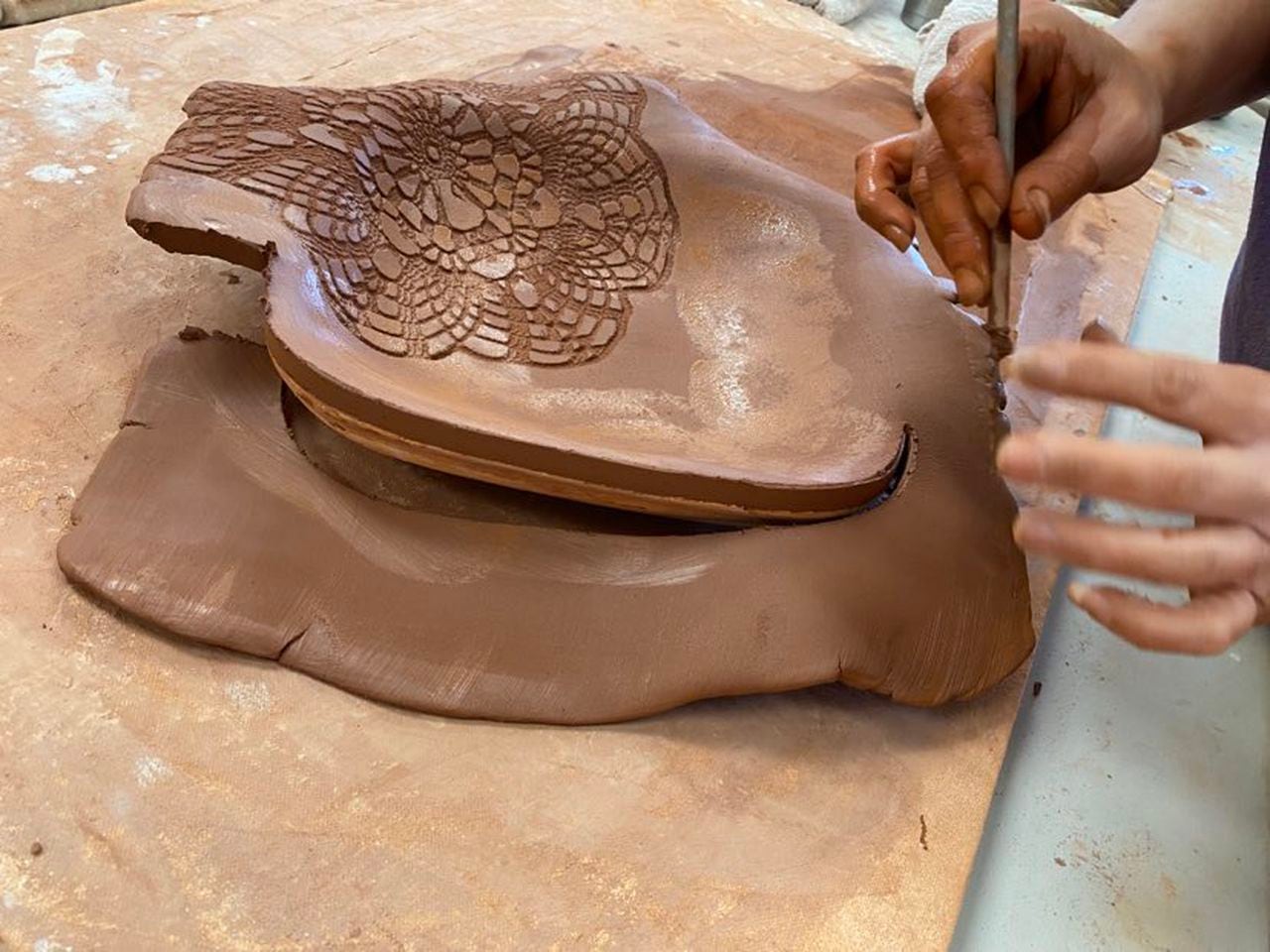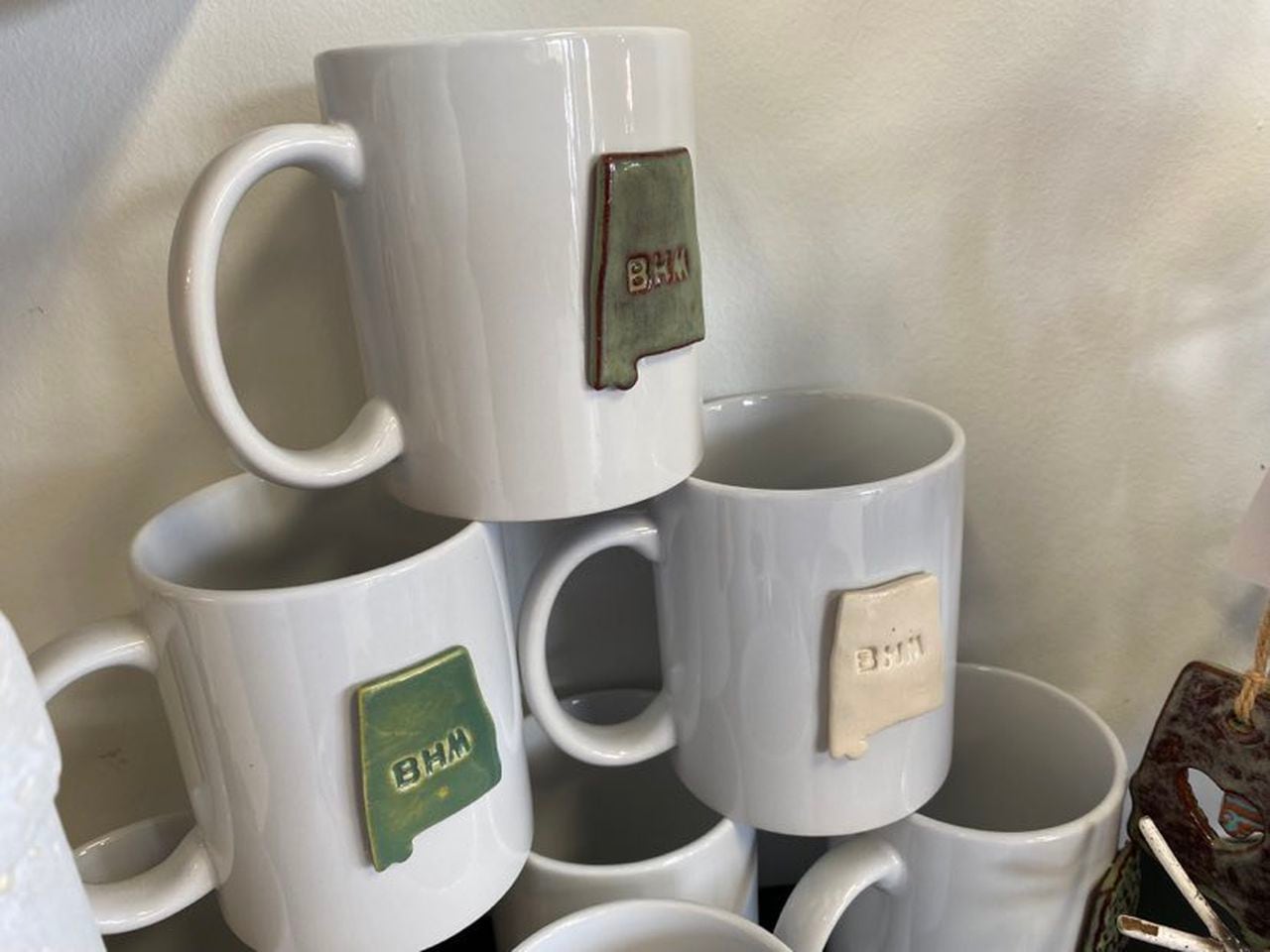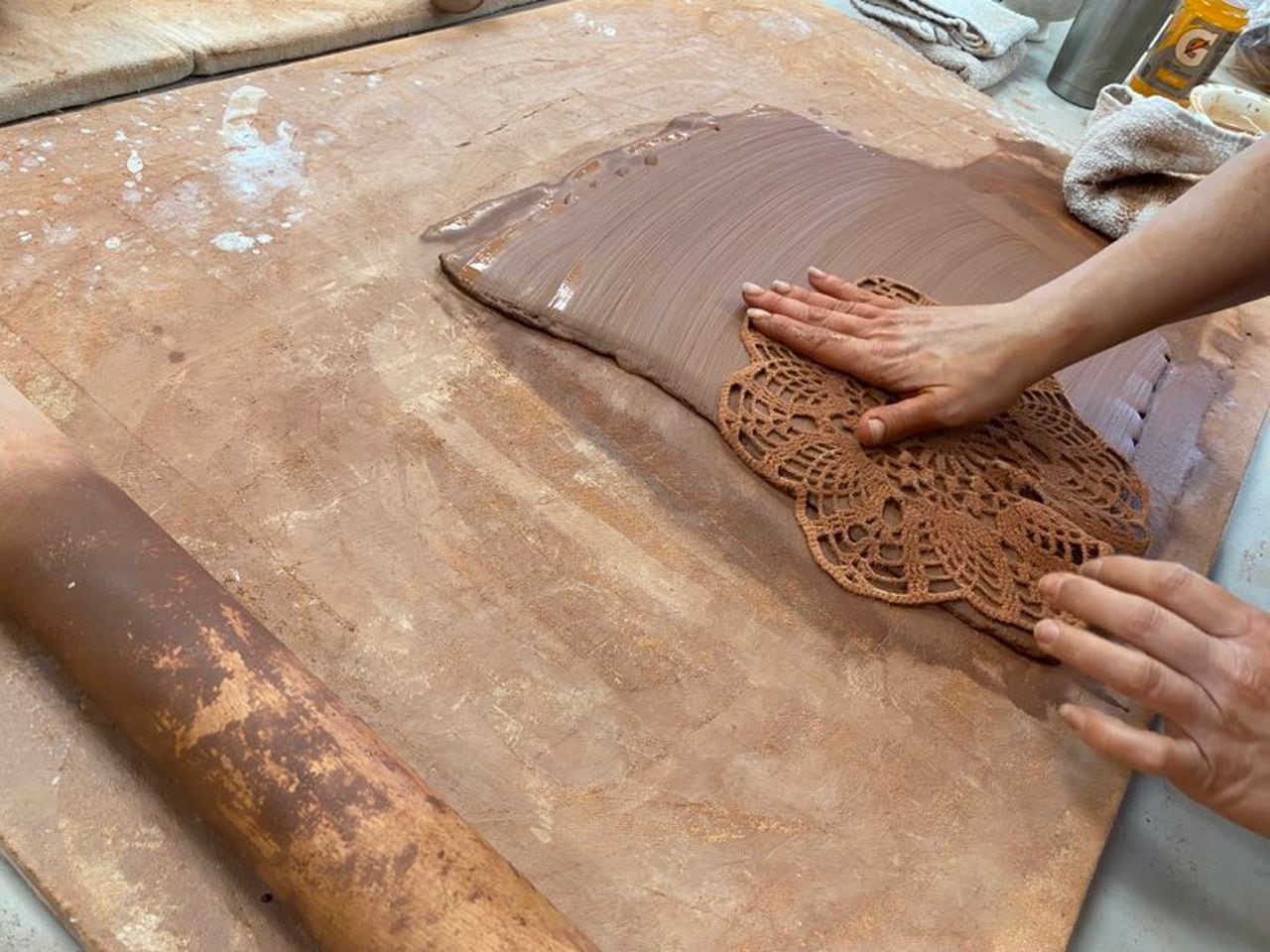How Prodigal Pottery empowers women to reclaim their lives
Coach Nick Saban drinks his coffee from a “Roll Tide” mug made at Prodigal Pottery. Hoda Kotb and Kate Hudson are other famous fans of the Alabama nonprofit that employs women who are trying to start over.
At Prodigal Pottery, located on the peaceful grounds of King’s Home in the rural town of Chelsea just east of Birmingham, women’s hands ply and shape simple blocks of clay into beautiful, useful objects: small bowls, ring holders, crosses, ornaments and much more. Through the act of transforming clay, the women – all of whom have experienced homelessness, sex trafficking and domestic abuse – are transforming themselves.
Each month, the women turn some 2,000 pounds of clay into hundreds of pieces of handmade pottery that are sold nationwide and in three foreign countries. The profits are then reinvested into the program. Some women make the pottery; some paint it in eight different glaze colors. Each piece is carved from slabs, in simple designs that are easily reproduced. They press lace doilies into the clay to make intricate patterns, then the pieces are fired twice in one of four large kilns.
A Prodigal Pottery employee presses a lace doily into a slab that will become a bowl.Michelle Matthews
During the holiday season, Prodigal Pottery turns out 500 ornaments and 200 pendants, which can be personalized and attached to mugs, each day. “It’s incredible to do the amount of business we do,” says co-director Amanda Claridy.
The 14 women who work there come from King’s Home for homeless women and victims of domestic violence; The WellHouse, a program for sex-trafficking victims; and The Lovelady Center, a shelter for female ex-offenders and their children.

A bowl begins to take shape as the clay is pressed into a mold at Prodigal Pottery.Michelle Matthews
The organization’s co-directors share similar stories. “We’re completely survivor-run,” says Amanda, who oversees Prodigal Pottery’s wholesaler division, while Jenna Collins handles the retail side and marketing. “All of us were in the same boat as these women. Probably my favorite thing about this job is being a beacon.”
Amanda was addicted to meth for 15 years. Pregnant at 19, she went to prison at age 20 after selling drugs to an undercover police officer. She wound up at The Lovelady Center in Birmingham in 2017. “I was happy to be out of the life I was living,” she says. “I surrendered to the Lord.”
She started working at Prodigal Pottery in 2019 and was promoted to co-director in June of 2022. “The thing I’m most proud of is being a missionary – my testimony and story leading people to the Lord,” she says.
Amanda bought her first house last year, and she’s working toward a degree in social work.
Likewise, Jenna was a heroin addict for 10 years. It’s hard to imagine that she once lived in the woods and had to forage for food. After her own mother died at age 25, Jenna was convinced she would do the same. She was caught in a “vicious cycle of addiction,” she says, losing custody of her children, going in and out of jail, “on the road to rock bottom.” Finally, “I was ready to live a different life,” she says. “God spared me.”
She came to King’s Home in 2018 with her third child, then just three weeks old, and went to work at Prodigal Pottery. “It was nothing like anything I’ve done before – the environment, the women, no deadlines to meet,” she says. She spent a year and nine months at King’s Home, transitioning out of the program and buying her first house.
“At King’s Home, God opened my heart and mind to live a sober life and be happy and healthy and all the things,” Jenna says.

The women working at Prodigal Pottery sell about 1,000 mugs per month, according to co-director Amanda Claridy.Michelle Matthews
Prodigal Pottery was started about eight years ago as an art therapy program after a donor gave a kiln to King’s Home. Founder Jamie Johnson, who has since taken a position with The WellHouse, mentored both co-directors and “was an instrumental part in our journeys,” says Jenna.
No pottery experience is required for the women who work there. Everyone is trained on the job. “We try to find what they like and move them to where they thrive,” says Amanda.
An important step in the pottery process is refining, where the potter goes back to a piece and removes the rough edges. At Prodigal Pottery, the women call it “loving” the piece. They give it the love it needs to turn it into something altogether new, unrecognizable from the clay from which it’s made – a perfect metaphor for their own redemption.
Prodigal Pottery is sold in more than 1,300 locations in the United States as well as three countries. For more information, visit prodigalpottery.com.
